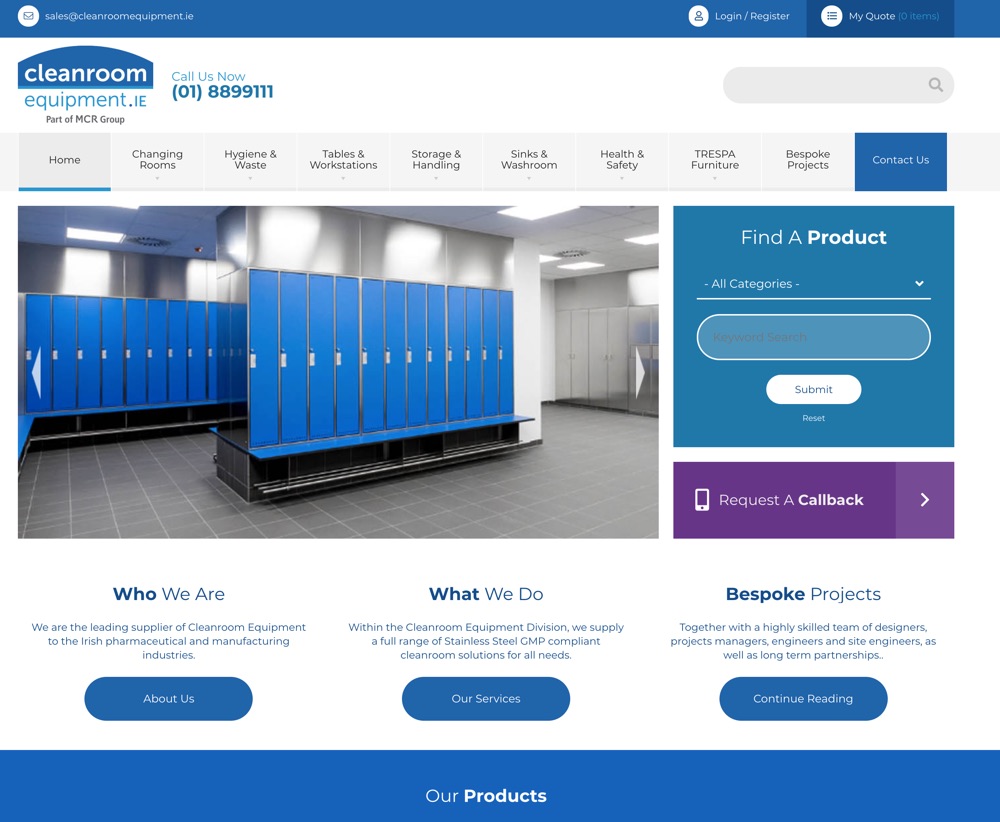
Reading domain dispute decisions is a rather odd way to spend your day, but I’ll admit that I do read quite a few of them. Why? Because it’s fascinating to see why and how people win or lose these disputes.
The .ie ccTLD traditionally has had a very low volume of complaints, with it being rare for them to get more than a handful of complaints per year. With the liberalisation of the registration policies last year there could be a slight increase in volumes, but so far that hasn’t happened.
A recent decision involving the domain name cleanroomequipment.ie piqued my interest, as it goes into a lot of detail about who could or should have rights in a string. With many ieDRP decisions the facts are usually pretty simple – either a trademark infringement has occurred or it hasn’t, but in this case the domain name was more “generic” and “descriptive”, so the discussions are worth looking at.
The complainant’s company is called Cleanroom Equipment Limited and has been in business since around since 1996. But the registrant’s been in business since around the same time.
The complaint is quite detailed, but makes several claims about both the complainant’s market position and its relationship with the disputed domain. This is where it gets quite interesting, as the panelist refutes some of the claims.
Here are a few of the pertinent bits:
Amongst other things, the Complainant relies on unregistered rights arising from its use of the name “Cleanroom Equipment”. The difficulty facing the Complainant is illustrated by the fact that the Complainant describes itself as a supplier of equipment for cleanrooms. The Complainant is therefore seeking to establish trade mark rights in a name which is not just descriptive but which is in fact wholly descriptive of the products supplied by the Complainant.
That in itself makes it much harder for the complainant to win. The panelist concedes that they do have rights, but they’re limited.
The bottom line is whether or not the complainant is able to show that their rights trump those of the registrant and that by registering and using the domain name the registrant acted in bad faith.
The Complainant devotes much of its submission to the issue of passing off but, in this proceeding, the Panel’s focus is on whether the disputed domain name was registered or used in bad faith in accordance with the IEDR Policy. In particular, the Complainant must establish that the Registrant registered or used the disputed domain name to target the Complainant rather than due to the descriptive or generic qualities of the disputed domain name. The Complainant has some work to do here given that, as discussed above, the term “cleanroom equipment” wholly describes the products supplied by both Parties. The Complainant’s position is made even more difficult by the fact that it does not expressly address the descriptiveness issue, instead proceeding on the assumption that its name is entitled to protection.
They then go on to explore how and why they feel that the registration doesn’t qualify as “bad faith”. End result? The complaint was denied.
You can read the full decision, which includes all the facts of the case here.
